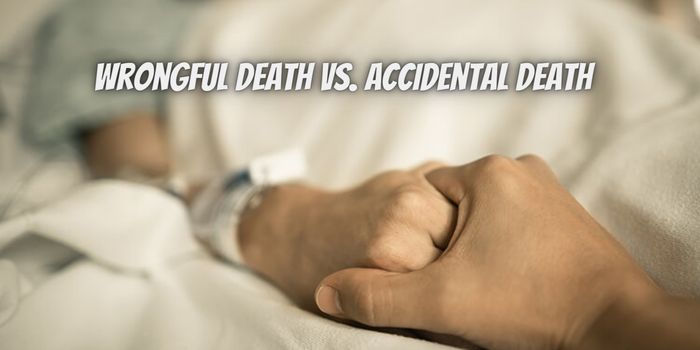The death of a loved one can be tragic. The circumstances surrounding their passing can add to the grief. In some cases, family members may be able to file a lawsuit over the loss of their loved ones. But how does one know when to file a lawsuit and which claim to file? The lawyers at www.aronfeld.com have explained this by defining accidental deaths and how it differs from wrongful death.
Understanding the difference between accidental and wrongful deaths can help put issues in perspective. It can also help families to understand what to do and how to proceed with their loved one’s remains. Find below everything you need to know about accidental and wrongful deaths.
What is Accidental Death?
Accidental death is a death caused by an accident. This type of death does not necessarily involve another party. Accidental deaths may also not have an at-fault party to blame.
Accidental deaths often do not have an element of criminal charges, especially because there are no valid grounds upon which the deceased’s family can file a charge. It may also lack the grounds for a civil case.
An example of an accidental death may be in the case of a hiker who was hiking a dangerous mountain trail. Surely, the hiker may not be prepared to die. However, they may slip and fall to their death due to an accidental misstep. Such a death can be classed as an accidental death. The nature of the death also means the deceased’s family cannot sue the shoe company, the government, or other parties for their loved one’s passing.
What is a Wrongful Death?
A wrongful death is the complete opposite of an accidental death. Wrongful death cases often have a third-party influence, without which the deceased may still be alive.
In essence, a wrongful death case is one in which the victim’s death could have been avoided if the liable party or parties had done the right thing.
An example of a wrongful death is a hiker who fell to their death after they were hit by a speeding bicyclist from the top of a mountain trail. In such a scenario, the hiker may have made it to the top of the hiking trail and back had they not been hit by the speeding bicyclist.
For such a case as this, the deceased’s family has grounds to file a criminal and/or civil charge against the at-fault party.
Understanding Wrongful Deaths
As earlier established, wrongful deaths are avoidable accidents leading to another person’s death. Such deaths often have a liable party who can be held responsible for the deceased’s passing.
The deceased’s family members can also choose to pursue a claim case to recover their damages. Such a claim case is a civil or wrongful death claim. The civil claim is aimed at recouping losses without punishing the at-fault party. On the other hand, the victim’s family may also choose to press criminal charges aimed at punishing the at-fault party if found guilty and convicted.
If filing a wrongful death claim or civil case, the deceased’s family may be able to claim monetary recompense for their losses. Some of the common losses that can be recovered include;
- Final medical expenses
- Life wages that would have been earned by the deceased. This is calculated by reviewing the deceased’s current occupation, salary, career path, and career progression.
- Pain and suffering experienced by the deceased before death.
- Emotional trauma suffered by the surviving family members
- Funeral costs
How to Know If You Can File a Wrongful Death Claim
One of the common questions family members ponder when they suspect foul play with their relative’s passing is whether they can file a wrongful death claim. However, the answer may not be as straightforward. Each case is unique and so are the facts and factors surrounding it.
If the death is considered accidental, then family members may not be able to initiate any legal proceedings. However, if the death was caused by a third party, then they may be able to file a case against the at-fault party and their insurance provider.
It is important to speak to an experienced wrongful death lawyer to better understand the facts of the case and how to proceed. Working with a wrongful death lawyer can also help to simplify some complexities and avoid common mistakes that could jeopardize the claim.
Hiring a wrongful death lawyer is an essential part of the claims case. The lawyer can help affected family members calculate their losses in monetary terms, demand the losses, and negotiate the right settlement for the family.
